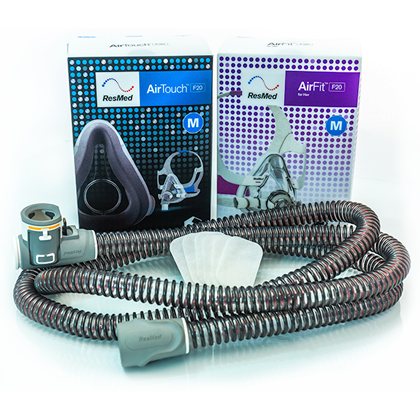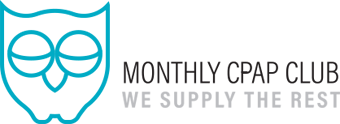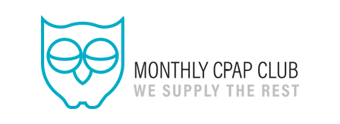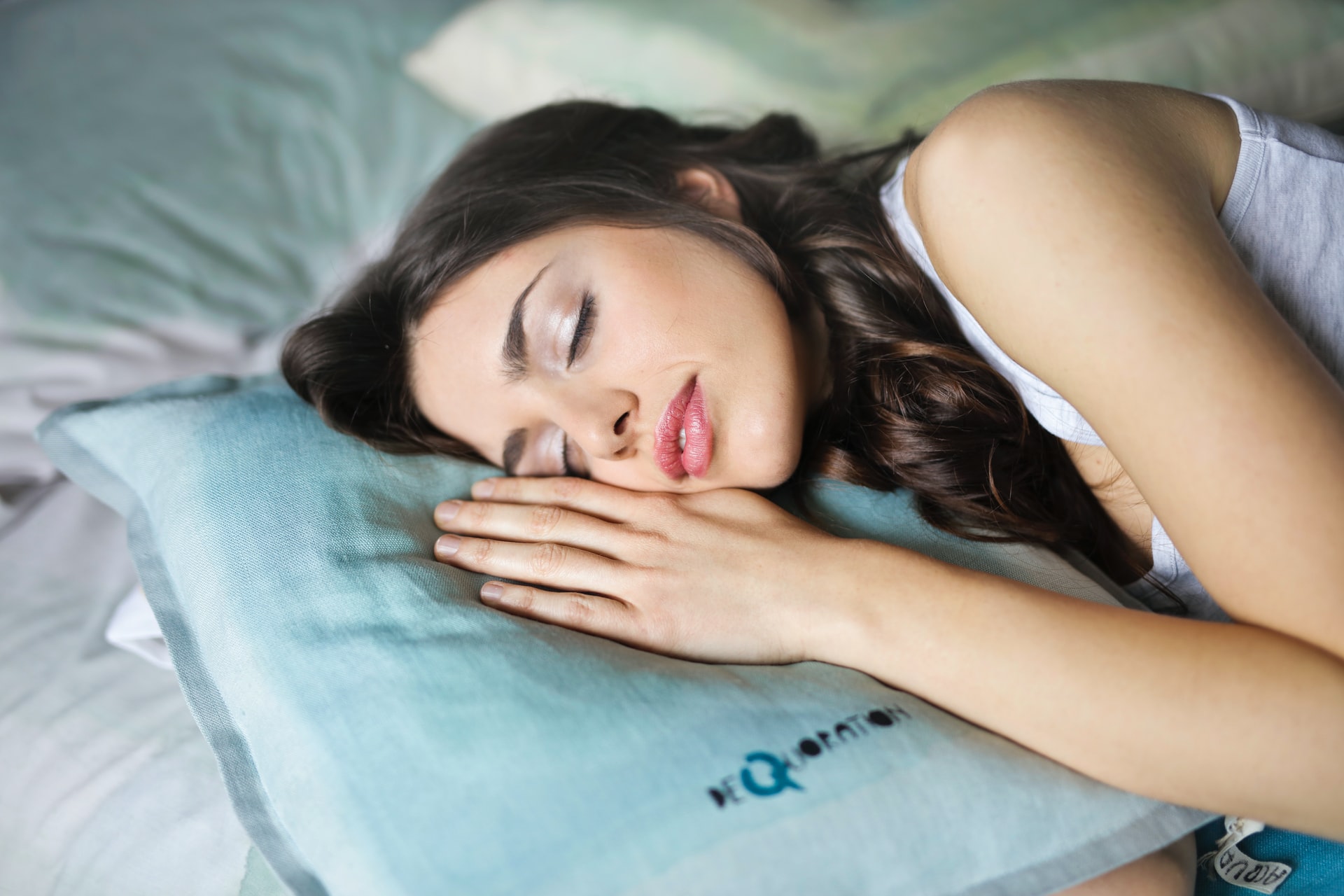- Posted on
- By Monthly CPAP Club
The Ultimate Sleep Study Guide
If you’re experiencing chronic daytime exhaustion or frequently disrupted sleep, you may be one of the 18 million Americans who suffer from sleep apnea. It is sometimes difficult to recognize because you may not remember waking up at night, which is why doctors recommend polysomnography (sleep studies) to diagnose the disorder.
Have you been recommended for polysomnography (a sleep study) to diagnose sleep apnea? Consider this your ultimate guide for what to expect.
Take Control of Your Sleep!
Sleep Apnea is frustrating! Getting the CPAP supplies you need isn’t with our amazing monthly plans that come with the name brand full-face CPAP mask of your choice plus free tubing, free filters, free cushions and free shipping! Plans start at just $36/month. Put your CPAP on autopilot today and … Leave the rest of to us!™ 30-day Fitmask™ Guarantee!
What Is a Sleep Study?
Polysomnography, more commonly referred to as a sleep study, is an effective method by which to diagnose sleep disorders. The test records your bodily functions during sleep, such as brain waves, blood oxygen levels, heart rate, breathing and eye and leg movements. Results can also be used to help adjust treatment for those who have already been diagnosed with a sleep disorder.
Sleep studies are typically conducted at a sleep center or within a hospital’s sleep disorders unit. While most studies are done overnight to align with circadian rhythms, they can also accommodate shift workers who sleep during the day.
Why Do a Sleep Study?
Sleep studies give you greater insight into your quality of sleep by recording the activity in your body and brain. This can help determine if or when your sleep is interrupted and can lead to a sleep disorder diagnosis. If you’re experiencing disrupted sleep or any symptoms of sleep apnea, a sleep study is the first step toward treatment and getting back to restful and rejuvenating sleep.
Falling asleep normally starts with the non-rapid eye movement (NREM) stage when the brain waves slow down and your eyes are still. During a sleep study, the electroencephalography (EEG) monitor records the slowed brain waves for an hour or two before you transition into rapid eye movement (REM) sleep. This is when extensive brain activity resumes and most dreaming occurs.
When you have uninterrupted sleep, you go through multiple 90-minute cycles of NREM and REM sleep. Sleep disorders, however, disrupt these cycles so your body doesn’t get the rest it needs. Polysomnography will detect the disruptions so your doctor can diagnose you with sleep apnea, if you have it.
Here are some reasons why your doctor may recommend a sleep study:
- You’re experiencing sleep apnea symptoms, such as snoring, gasping or irregular breathing that wakes you up during sleep.
- You involuntarily move your limbs during sleep, which may be either periodic limb movement disorder or restless legs syndrome.
- You have staggering daytime drowsiness or fall asleep at random (i.e. signs of narcolepsy).
- You act out dreams while you’re sleeping, which is known as REM sleep behavior disorder. Other unusual behaviors during sleep are also reasons to complete a sleep study.
- You’re experiencing chronic insomnia or having trouble staying asleep.
In short, a sleep study can put you on the path toward restored high-quality sleep.
Types of Sleep Studies
There are four types of sleep studies that can identify sleep apnea or other sleep disorders.
- Diagnostic overnight polysomnography (PSG) is a basic sleep study that records your body and brain activity during sleep. It tests breathing patterns, blood oxygen levels, heartbeat and any limb movements.
- Diagnostic daytime multiple sleep latency test (MSLT) records daytime drowsiness by testing how quickly you can fall asleep and enter REM sleep in peaceful scenarios during daytime hours. Therefore, it can effectively diagnose narcolepsy. This test is completed the morning after a diagnostic overnight PSG.
- Two-night evaluation PSG and CPAP titration is a multi-day sleep study. Night one is similar to a diagnostic overnight PSG, and the medical team may diagnose you with sleep apnea. On night two, you return to the sleep center so the specialists can determine the best settings for your continuous positive airway pressure (CPAP) treatment. You then choose a CPAP mask and continue CPAP treatment at home.
- Split-night PSG with CPAP titration is an abbreviated version of the two-night evaluation PSG. Your symptoms may present themselves and show the sleep specialists you’re suffering from moderate to severe sleep apnea. They then set your CPAP pressure levels in the second half of the test, rather than on the following night.
Risks
Though the concept of a sleep study may sound intimidating, the reality is it is almost risk-free. Polysomnography is designed to be noninvasive because the specialists want to test your sleep as you’d sleep at home. Some patients may experience skin irritation because the test requires sensors to be attached to the skin, but otherwise the process is painless.
How to Prepare for a Sleep Study
The medical team conducting your sleep study will give you specific instructions for how to prepare, but it is commonly recommended that incoming patients abstain from alcohol and caffeine before the study. Food and drinks with alcohol or caffeine impact your sleep patterns and can sway the results of the polysomnogram by worsening sleep apnea symptoms.
It’s also unwise to take a nap on the day of your study, as it will affect your natural sleep patterns. The medical team will also ask you to bathe or shower before arriving but avoid hygiene products like lotion, cologne/perfume or makeup that can interfere with the electrode sensors.
What to Expect from Polysomnography
As mentioned, polysomnography is noninvasive and painless, but you’re likely wondering what to expect from the process. Let’s break down the before and after.
Before and During the Sleep Study
Once you’ve arrived at the sleep center or sleep disorders unit, you are checked in and taken to a dark and quiet room similar to a hotel room. You’ll get the room to yourself and have your own bathroom as well. The only difference between a standard hotel room and a sleep study room is the latter will be equipped with a low-light video camera so the medical team can monitor activity in the room while it’s dark. There will also be a two-way audio system so you can communicate with the technologists running the sleep study.
Bring your own pajamas and anything you use as part of your bedtime routine. Once you’re ready to go to sleep, you’ll have sensors attached to your scalp, temples, chest and legs. A mild adhesive keeps each sensor in place, and long wires connect the sensors to a computer. There will be enough room for you to move during sleep. Finally, the techs will place a small clip on your finger or ear to record blood oxygen levels.
These are what the sleep specialists test during the study:
- Brain activity
- Eye movements
- Heart rate
- Breathing patterns
- Oxygen levels in your blood
- Limb and body movement
- Body positioning
- Snoring, choking or gasping
- Noises you make during sleep
You are not required to do anything special during the study, as the technologists are monitoring how you sleep normally. The test runs overnight, and you can ask for assistance with detaching the sensors if you need to get up at any time.
If the techs suspect you have sleep apnea, they may bring in a positive airway pressure (PAP) machine that delivers filtered, gently pressurized air directly into your airway. Some patients are given a CPAP machine for a constant stream or air, whereas others are given a bi-level positive airway pressure (biPAP/bPAP) machine. This alternative delivers more pressurized air during the user’s inhale and lower pressure during the exhale.
Sleeping with sensors, wires and maybe a PAP machine is not an easy adjustment, so you may find difficulty in falling or staying asleep. This is not cause for concern. Try to sleep as naturally as possible so your sleep study team can get a full night of data and the most accurate results.
After the Study
In the morning, the techs will detach the sensors and send you home where you may resume your usual activities, including caffeine consumption, scented hygiene products, etc. You’ll also book a follow-up appointment with your doctor at this time, at which point you’ll review results together.
Polysomnography Results
Your sleep study results are processed by the polysomnography technologists and translated into charts for your doctor to review. The data shows:
- How your brain waves and eye movements change during sleep and if there were disruptions to either.
- If there were changes in your breathing or heart rate that may indicate that you suffer from sleep apnea.
- The best settings to treat sleep apnea with a CPAP machine, if applicable.
- If you have any limb or body movements or other unusual mid-sleep activity that could be a sign of other sleep disorders.
At your follow-up appointment, you and your sleep doctor review the results of your sleep study and get you set up with CPAP therapy if you are diagnosed with sleep apnea.
Getting Started with CPAP Therapy
If you’ve indeed been diagnosed with sleep apnea, you’ll get started with CPAP therapy. There is no known cure for most cases of sleep apnea, so it’s imperative to choose a CPAP setup that is comfortable and easy to use.
Your sleep doctor will get you set up with a CPAP machine first. This is the machine that will actually pressurize the air before it is sent through a filter, tubing and mask. From there, you’ll choose a CPAP mask based on your standard sleep position and breathing style. (Don’t miss our guide to help you choose the right CPAP mask fit for you!) Finding a mask may be a process of trial and error, but there are plenty of options on the market that can help you get back to sleeping well.
A major part of successful CPAP therapy is staying on top of your equipment replacement schedule. Masks, tubing and filters are all recommended to be replaced regularly so you can avoid bacterial buildup or excessive wear and tear. The best way to “set it and forget it” is to sign up with a CPAP subscription service that delivers supplies right to your doorstep. Simply choose a mask and leave the rest to Monthly CPAP Club. It really is that easy.
Take Control of Your Sleep!
Sleep Apnea is frustrating! Getting the CPAP supplies you need isn’t with our amazing monthly plans that come with the name brand full-face CPAP mask of your choice plus free tubing, free filters, free cushions and free shipping! Plans start at just $25/month. Put your CPAP on autopilot today and … Leave the rest of to us!™ 30-day Fitmask™ Guarantee!
F.A.Q.
Monthly CPAP Club is a new approach to delivering a regular and scheduled shipment of all your CPAP supplies for one low monthly cost.
We charge you a small monthly free and deliver a fresh CPAP mask, tubes, filters and cushions to your door every 3 months.
We work with the major manufacturers to provide a selection of the most popular CPAP masks, cushions, tubing, filters and other accessories.
You get one shipment with all the CPAP supplies you’ll need for the next three months and you just pay one low, monthly payment.
Monthly CPAP Club lets you know when it’s time to change your filters, clean your mask and tubing. Three months after your first order, we’ll let you know (via email) that it’s time to replace your CPAP supplies, and we will ship out a package with a replacement mask, tubing, and filters for your CPAP machine, all including in your monthly fee.
Every package allows you to choose your preferred style of CPAP mask and the brand, make and model you prefer. You have the choice of standard tubing or heated tubing. You have the option for extended tubing options with heated tubing. Every package also includes cushions for the mask and filters for your machine
We need to know which CPAP breathing machine you use so we can send you the correct filters. Filters are specific to machines.
If you don’t see your CPAP breathing machine model listed, please contact us at sales@monthlycpapclub.com. Please include the make and model of CPAP breathing machine you use.
We do support many machines. The most popular machines are listed right now and more will be added as we grow.
In the mean time, let us know which machines you use so we get you the correct filters.
Monthly CPAP Club currently offers Resmed, Respironics, and Fisher & Paykel CPAP products. We can accommodate certain other brands when requested by email. Please let us know by emailing us at sales@monthlycpapclub.com or submit a request online.
Our goal at Monthly CPAP Club is to offer all the necessary CPAP supplies for good sleep hygiene in simple, scheduled quarterly shipments.
We want the program to be even easier for the end user to afford with a monthly payment.
When you sign up for a package with Monthly CPAP Club, you will be charged the monthly package amount ranging from $30 and up, depending on your preferences.
We will ship out a package within 1 business day of your order with all the CPAP supplies you’ll need to properly treat your sleep apnea with clean and effective supplies.
The next scheduled shipment for your account will commence 3 months after your initial first shipment. We’ll send you an email your next delivery is on the way.
The best part about Monthly CPAP Club for those living with sleep apnea is that CPAP supplies are one less thing you’ll have to regularly order, schedule or pick up. We ship you the supplies you’ll need for the next three months and ship you another package in three months will all new and fresh CPAP supplies.
We do sell most of the popular and newest CPAP machines. Although we do not list many of the machines on our Monthly CPAP Club site, we can process orders for machines via email for existing subscribers and over the phone for new users.

Join The Club
Getting started is easy. Just click the button below. Choose your supplies, customize your plan and we’ll send your CPAP supplies straight to you! So take a load off and leave the rest to us!


